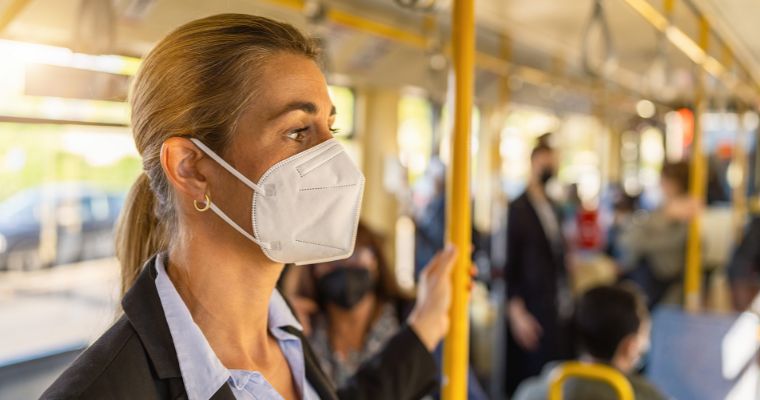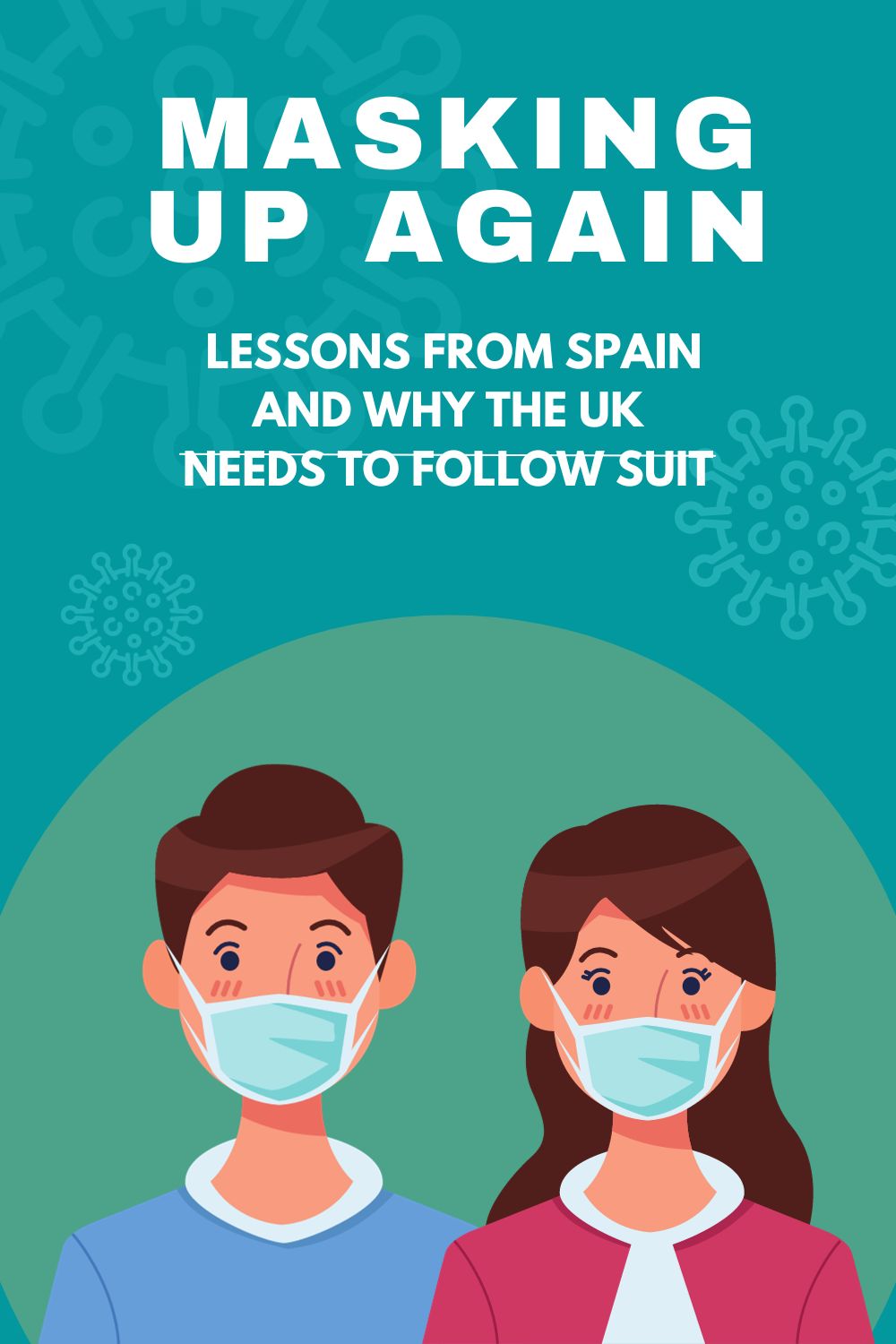As Spain grapples with a winter surge of COVID-19 and flu, some areas have taken a decisive step: reintroducing mandatory mask-wearing in healthcare settings and certain crowded spaces. This proactive measure reflects a commitment to public health and offers a valuable lesson for other nations, including the UK.

Remember, it wasn’t long ago that the UK, too, embraced masks as a vital tool against the pandemic. Yet, with its lifting of restrictions, we’re witnessing a similar upswing in cases. Overwhelmed hospitals, rising infection rates, and vulnerable populations at risk paint a concerning picture.
It’s time to acknowledge that masks remain a valuable weapon in our public health arsenal. Here’s why Spain’s approach is worth emulating:
By reintroducing masks in high-risk environments, Spain prioritises the safety of healthcare workers, patients, and vulnerable individuals. This simple measure can significantly reduce transmission and protect those most susceptible to severe illness.
Waiting for case numbers to skyrocket before responding is like playing catch-up with a speeding virus. Taking preemptive steps like mask mandates, as Spain has done, demonstrates a commitment to preventing outbreaks instead of merely reacting to them.
The Spanish approach isn’t a blanket policy but a targeted intervention focused on specific settings where risk is high.
So, what can the UK learn from Spain?
As the UK faces its winter surge, we must adapt. Reintroducing mask mandates in healthcare settings, public transport, and crowded indoor spaces should be seriously considered. These measures, coupled with continued vaccination and testing efforts, can create a safer environment for everyone.
Mask Up, UK
Let’s not forget the effectiveness of masks. With so many comfortable, stylish, and efficient options available, there’s no excuse not to make them a part of our daily routine, especially in high-risk indoor situations. I recommend wearing either of the following:
FFP2s
FFP2s are known for their high filtration efficiency, filtering at least 94% of 0.3 micron particles, which includes most virus-carrying respiratory aerosols.
FFP2 is the standard in the UK and Europe, equivalent to N95 in the US and Canada, and KN95 in China.
Check that any FFP2 masks you purchase are legitimate, bearing a CE mark, the standard number (EN149:2001 for FFP2 respirators), the manufacturer name, logo or number, and a Notified Body number.
FFP3s
FFP3 masks, also known as P3 masks, are the highest grade of protective masks available. They provide a high level of protection, filtering at least 98% of very fine particles, including those as small as viruses.
These masks come in both disposable and reusable forms, with the reusable ones available as either half-masks or full-face masks. Each mask is designed for comfort and a secure fit on the face, having passed rigorous safety tests.
Like FFP2s, check for the CE mark and the standard number EN149:2001+A1:2009 and always source your masks from a reputable supplier to avoid counterfeit PPE.
Remember, masking up is an act of kindness towards yourself and your community. It shows you care about public health and are willing to take responsibility for slowing the spread of the virus.
Let’s follow Spain’s example and recognise masks as a vital tool to protect ourselves and one another.
In summary, COVID-19 is a systemic virus that can have lasting effects on the body, leading to conditions like Long COVID, heart attacks, and strokes. These effects can persist even after recovery from the acute phase of the disease, highlighting the importance of prevention and ongoing medical care for those affected by COVID-19.
Sources that provide evidence for the systemic effects of COVID-19:
- Covid-19: Even mild infections can cause long-term heart problems, large study finds: This study found that infection with SARS-CoV-2 can cause cardiovascular problems for up to a year, not just during the acute phase. People who had COVID-19 had a 72% increased risk of heart failure, 63% increased risk of heart attack, and 52% increased risk of stroke compared with controls.
- How SARS-CoV-2 contributes to heart attacks and strokes: This research shows that SARS-CoV-2 can infect coronary arteries and increase inflammation in atherosclerotic plaques, which could explain why people with atherosclerosis are more vulnerable to COVID-19. This inflammation could potentially lead to heart attacks and strokes.
- Individuals With Long COVID More Likely to Experience Heart Problems: This research found that individuals with Long COVID were significantly more likely to experience symptoms associated with heart problems such as chest pain, shortness of breath, palpitations, and fatigue, and more likely to show markers of heart disease or elevated cardiovascular risk in medical imaging and diagnostic tests.
- COVID-19 diagnosis raises risk of heart attack, stroke: This study found strong evidence that heart attack and stroke risk rises sharply in the weeks following a COVID-19 diagnosis.
- Heart-disease risk soars after COVID — even with a mild case: This study shows that even a mild case of COVID-19 can increase a person’s risk of cardiovascular problems for at least a year after diagnosis. Rates of many conditions, such as heart failure and stroke, were substantially higher in people who had recovered from COVID-19 than in similar people who hadn’t had the disease.
Enjoy this Post? Support Sue Foster on Ko-fi


